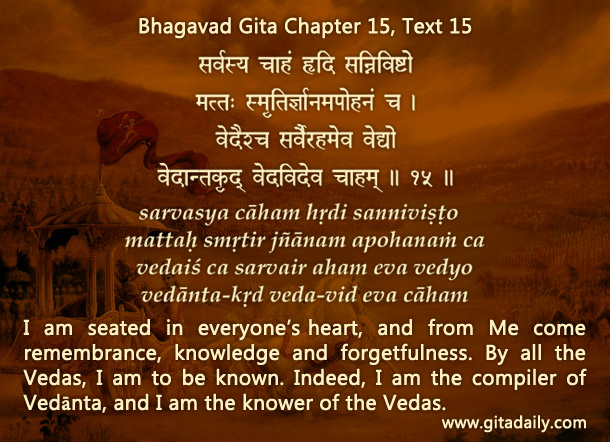Many regularly used words have nuances that we rarely ponder. Consider the word “heart.”
When we say, “He suffered a heart attack,” we refer to the biological organ present in the chest. In contrast, when we say, “I am heartbroken,” we refer to something else: to the seat of our emotions. But where exactly is that seat? Nowhere, if we subscribe to the materialistic conception of the self, which reduces our emotions to just electrochemical signals in our brain cells. Materialism leaves our heart with no locus standi.
To better understand what the heart is, we need a more inclusive self-conception. Gita wisdom explains that our existence spans three levels: body, mind and soul. Our consciousness originates from the soul and streams through our mind to the body and the physical world. Only because of our consciousness do we experience any emotion. Presently, our consciousness is often caught in many superficial things because of our various worldly attachments, which are located in our mind. Thus, the present seat of our emotions is our mind — in that sense, our heart coincides with our mind. That’s how a sports fan might feel heartbroken because their favorite sports team lost a match.
Beyond various superficial attachments lie our defining identity, our driving aspirations, the things that make our life meaningful. When we realize and harmonize with those, our emotions become centered on our core: the essence of who we are and the essence of what makes us who we are. Then, our heart coincides with the core of our being. The Divine resides at that core of our being (Bhagavad-gita 15.15), forever calling us toward the things that matter the most.
One-sentence summary:
The heart refers not just to the biological organ or the seat of our affections, but also to the core of our being.
Think it over:
- What are the three major meanings of the word ‘heart’?
- Why does materialism leave no locus standi for the heart?
- How does Gita wisdom illuminate our understanding of the heart?
***
15.15: I am seated in everyone’s heart, and from Me come remembrance, knowledge and forgetfulness. By all the Vedas, I am to be known. Indeed, I am the compiler of Vedānta, and I am the knower of the Vedas.


Leave A Comment